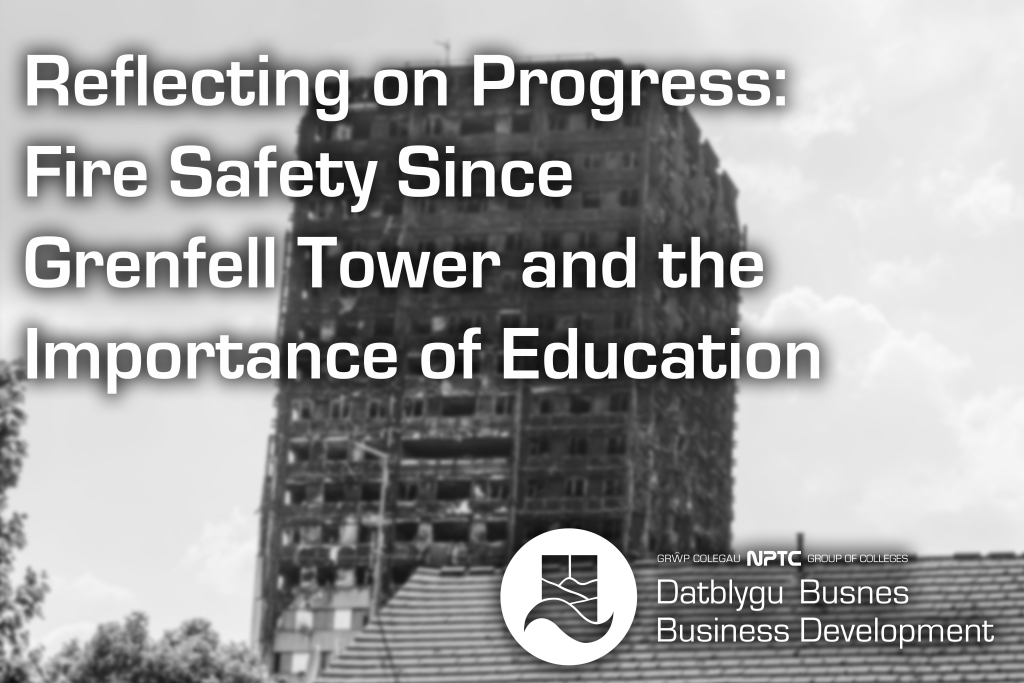
The Grenfell Tower tragedy on 14 June 2017 marked one of the darkest days in recent history, claiming 72 lives and exposing critical shortcomings in fire safety practices and building regulations. In its aftermath, efforts to reform fire safety have been relentless, seeking to ensure that such a devastating event is never repeated.
From Tragedy to Transformation: A Timeline of Accountability and Progress
2017
- June 15: A police investigation began, marking the first step toward accountability in the wake of the tragedy.
- June 29: The Grenfell Tower Inquiry was announced, aiming to expose systemic failures and prevent future disasters.
- July 28: The Hackitt Review was initiated to independently scrutinise building regulations and fire safety standards.
2018
- May 17: The final report of the Hackitt Review was published, calling for a transformative shift in the culture of safety compliance.
2019
- October 30: Phase 1 of the Grenfell Tower Inquiry revealed crucial insights into the events leading to the fire, demanding immediate and vital reforms.
2020–2024
- From the Draft Building Safety Bill in 2020 to the enactment of the Fire Safety Act in 2021 and the phased provisions under the Building Safety Act between 2023–2024, these legislative advancements underscore significant progress in prioritising public safety and ensuring accountability.
Despite significant progress, the tragedy stands as a powerful warning about the critical need for robust fire safety compliance, effective procedures, and enhanced skills to meet the demands of evolving legislation.
Why Fire Safety Training Matters
Beyond legislation, knowledge is our greatest defence against future catastrophes. Proper fire safety training equips individuals and organisations with the skills to identify risks, prevent fires, and act decisively during emergencies. Courses tailored to businesses and community members play a vital role in fostering a safety-conscious culture.
The Grenfell Tower fire demonstrated that neglecting fire safety can have catastrophic consequences. By prioritising education in fire safety practices and compliance, we empower individuals and organisations to create safer environments.
As providers of fire safety courses, we remain committed to equipping learners with the expertise needed to protect lives, property, and communities. From understanding legislation like the Fire Safety Act to mastering emergency procedures, our courses are designed to ensure the lessons of Grenfell drive lasting change.
Fire Safety Training at NPTC Group of Colleges
At NPTC Group of Colleges, we are proud to offer a wide range of fire safety courses designed to meet the needs of individuals and organisations alike. Our training programs emphasise the practical skills and knowledge required to prevent fire risks, respond effectively in emergencies, and comply with current fire safety regulations.
Whether you are a business looking to upskill your workforce or an individual interested in enhancing your understanding of fire safety, our courses cater to all levels of experience. Our provision includes:
- Fire Marshal Training (Part-Time): This course provides essential training for those appointed as fire marshals, covering fire prevention, emergency response, and evacuation procedures.
- Level 2 Award in Fire Safety (Online Delivery, Part-Time): Ideal for those seeking a formal qualification, this course covers the principles of fire safety and risk assessment.
- NVQ in Passive Fire Protection (Level 2): This qualification focuses on the installation and maintenance of passive fire protection systems, ensuring structural safety and compliance.
- Fire Door Installation Awareness (Part-Time): Specialising in the correct installation of fire doors, this course ensures that participants understand the importance of fire doors in preventing the spread of fire and smoke.
- Level 2 ABBE Certificate in Fire Sprinkler Installation: Learn the essential skills for installing fire sprinkler systems effectively, ensuring compliance with safety standards.
- Level 3 Installation and Maintenance of Automatic Fire Sprinkler Systems: Gain advanced expertise in the installation and upkeep of automatic fire sprinklers to enhance fire protection systems.
- City & Guilds 2391-52 L3 Inspection, Testing & Certification of Electrical Installations: Master techniques for inspecting and certifying electrical systems to prevent fire hazards and ensure safe installations.
- NEBOSH General Certificate in Occupational Health and Safety: Develop a comprehensive understanding of workplace health and safety practices, including fire risk management and prevention.
- IOSH Working Safely (Part-Time): A practical introduction to workplace safety, focusing on fire prevention and basic emergency procedures.
- IOSH Managing Safely (Part-Time): Equip managers with the skills to oversee fire safety protocols and manage risks effectively in their teams.
- Level 2 Award in Health & Safety in The Workplace: Learn key health and safety principles, including fire safety measures to create safer environments.
Our expert trainers bring a wealth of industry experience, ensuring that participants not only understand theoretical principles but also gain hands-on, practical skills that can be applied in real-life situations.
Get in touch to find out more about our Fire Safety Training.


